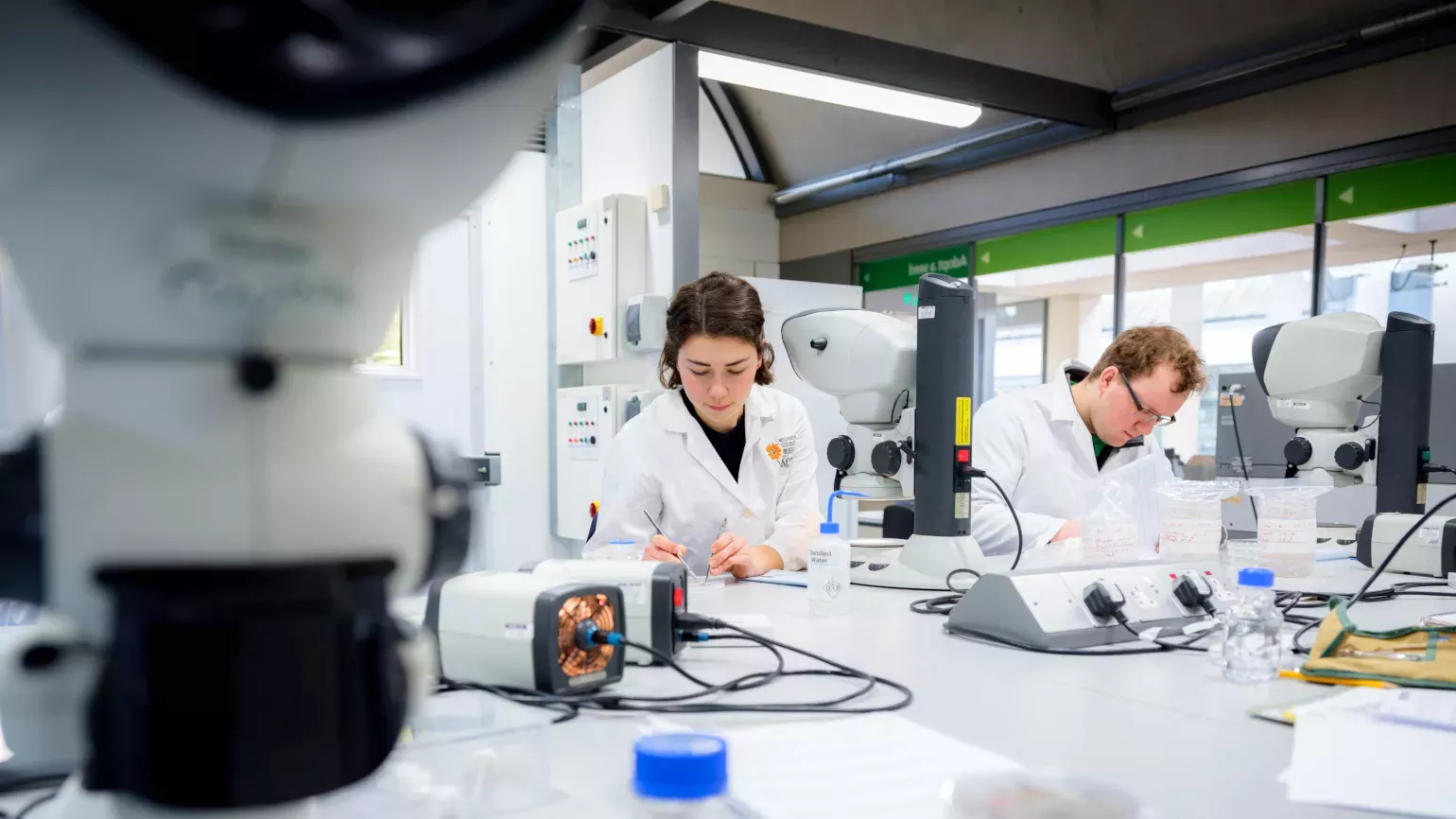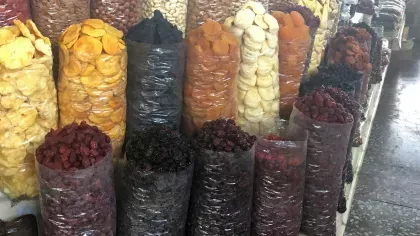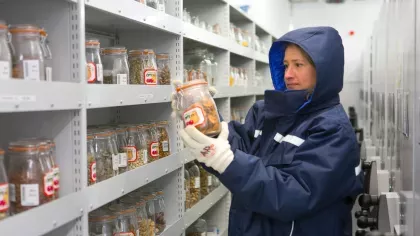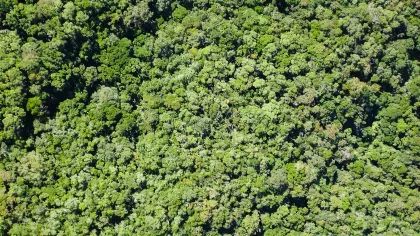10 November 2022
5 ways Kew Science is transforming the world stage
Let's take a look at Kew's contributions to science and conservation.

World Science Day highlights the significant role of science in our global society.
At Kew, the work of our scientists and partners strives to understand and protect plants and fungi, for the wellbeing of people and the future of all life on Earth.
Here are some of the ways we are leading the way for science and conservation.
1. A presence on the international arena
As a world-leading institution for plant and fungal science, Kew was proud to feature prominently at the COP26 summit in Glasgow last year.
Time will tell whether the world has galvanised an adequate response to the climate crisis, though as recent reports indicate, a key goal to keep global warming at 1.5C is unlikely to be met.
As disappointing as that may be, Kew’s mission to protect global biodiversity for all has not changed and is now more important than ever.
So experts from Kew are heading out to the upcoming Biodiversity Conference in Montreal (COP15) to shine the spotlight on plants and fungi, and the need to consult science-based evidence in all conservation efforts – both global and local.
The role of Kew Science is to tackle 'the climate and biodiversity crises together' and to support those whose livelihoods depend on nature – Director of Kew Science, Professor Alexandre Antonelli.

2. A tool for education and inspiration
Kew’s experts routinely work with students from across the globe, as well as communities right on their doorstep.
One such example is the Saturday Science Club – an exciting opportunity for Kew to engage with families from underserved backgrounds, offering insight into Kew’s vital scientific research and conservation work. After all, plant and fungal sciences are for everyone, and can in fact be fun!
Dr Hauke Koch, Kew’s very own expert in pollinator health, held guided tours of the Gardens which wowed many a visitor with facts about Kew’s bumblebees and his macabre collection of pinned bees, straight out of his cabinet of curiosities.
Did you know we have more than 200 species of bees in the UK, and more than 100 of them are found here at Kew?
Alongside our community initiatives, we run a Master programme with Royal Holloway University of London on Food Security, Sustainability and Biodiversity that seeks to tackle the biggest challenges our food systems face, from climate change to intensive agriculture.


3. A source of positive change
At the heart of everything Kew Science does, is the desire to protect biodiversity for the benefit of all, and that means working closely with local communities to protect their interests and indigenous knowledge of nature.
For example, our work on yams in Madagascar has provided ex situ conservation opportunities for the country’s biodiversity, while at the same time providing local communities with a source of food security and economic benefits.
In Ethiopia, Kew scientists and partners have been studying the ‘false banana’ (Ensete ventricosum). Already a source of food for some 20 million Ethiopians, this 'tree against hunger’ has potential to feed hundreds of millions of people across Africa.


The work of Kew’s experts at the Millennium Seed Bank (MSB) in Wakehurst, has also yielded real, positive change for the future. When devastating bushfires ravaged Australia in 2019, Kew’s experts partnered with the Australian Seed Bank Partnership to conduct emergency seed collecting in affected areas and provided seeds from the MSB to help rewild the damaged ecosystems.
On 16 January 2020, specialist firefighters saved the world’s last wild Wollemi pines from the Gospers Mountain fire. Had these rare trees been lost forever from the wild, living collections across the globe such as ours would have been vital in contributing living material to support the restoration of fire-affected areas.

4. A leading voice among peers
Kew Science is a globally recognised institution and that all comes down to the wonderful work of our scientists, who often lead the conversation at global talks and conferences.
Kew experts appeared at Food Matters Live and will be attending The Future of Food Production summit, which address issues relating to food security; agriculture; strengthening our food systems in the face of climate change and supply chain issues; and what crops may grace our plates in 2050.
For decades, the global food system has relied on a small number of plants — 75% of our calories come from just 12 crops. As the climate changes, the risk of relying on a small number of crops rises. So, the food system needs to adapt and change; we should be growing a wider variety of crops.
Hear how Kew scientists are enhancing local food security and socio-economic development in Ethiopia.
If you want to explore how our relationship with food is impacting the health of the planet alongside artists, thinkers, chefs and Kew scientists, check out our new podcast: Unearthed: Journeys into the future of food.
5. A publishing powerhouse
Kew scientists published over 600 papers across a variety of journals in the year 2021/2022. This impressive figure is a great reminder of the wealth of knowledge Kew’s more than 300 scientists represent.
Among some of the highlights are a special edition on research into pollinator health; a paper that found that more than 1,000 species of palms could be facing extinction; and one of the biggest stories of the year – the discovery of a new giant waterlily species Victoria boliviana – the largest in the world.





